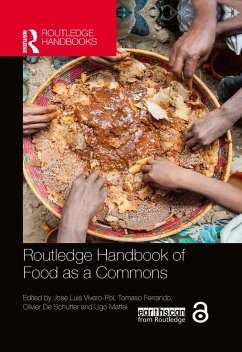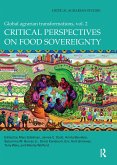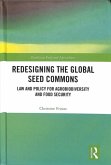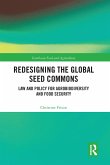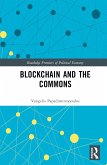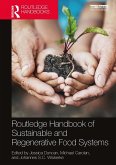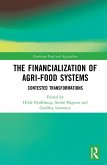This Handbook provides the first comprehensive review and synthesis of knowledge and new thinking on how food and food systems can be thought, interpreted and practiced around the old/new paradigms of commons and commoning. The overall aim is to investigate the multiple constraints that occur within and sustain the dominant food and nutrition regime and to explore how it can change when different elements of the current food systems are explored and re-imagined from a commons perspective.
The book sparks the debate on food as a commons between and within disciplines, with particular attention to spaces of resistance (food sovereignty, de-growth, open knowledge, transition town, occupations, bottom-up social innovations) and organizational scales (local food, national policies, South-South collaborations, international governance and multi-national agreements). Overall, it shows the consequences of a shift to the alternative paradigm of food as a commons in terms of food, the planet and living beings.
Chapters 1 and 24 of this book are freely available as downloadable Open Access PDFs at http://www.taylorfrancis.com under a Creative Commons Attribution-Non Commercial-No Derivatives (CC-BY-NC-ND) 4.0 license.
The book sparks the debate on food as a commons between and within disciplines, with particular attention to spaces of resistance (food sovereignty, de-growth, open knowledge, transition town, occupations, bottom-up social innovations) and organizational scales (local food, national policies, South-South collaborations, international governance and multi-national agreements). Overall, it shows the consequences of a shift to the alternative paradigm of food as a commons in terms of food, the planet and living beings.
Chapters 1 and 24 of this book are freely available as downloadable Open Access PDFs at http://www.taylorfrancis.com under a Creative Commons Attribution-Non Commercial-No Derivatives (CC-BY-NC-ND) 4.0 license.
"If you want to understand why the commons isn't tragic, what gastronomy has to do with a democracy or what the practice and theory of a future food system might look like, this wonderful collection of essays is well worth reading." - Raj Patel, food scholar, communicator and author of Stuffed and Starved, 2013 and A History of the World in Seven Cheap Things, 2018
"The adoption of a holistic and complex vision of gastronomy is the only way to restore the true value of food. It is not only about production and consumption, but also wisdom, memory, knowledge and spirituality, traditional practices and modern technologies combined in an ecological interconnection between people and the planet. This book starts a needed and welcome reflection on the change in paradigm, and traces a possible pathway towards food sovereignty." - Carlo Petrini, founder and president of the international Slow Food movement and the University of Gastronomic Sciences, Italy
"If we are really to transform the food system, we need bold ideas. Food as commons is one of them. If you are serious about exploring new ways of fixing the food system, read this book." - Professor Corinna Hawkes, Director, Centre for Food Policy, City, University of London, UK and Co-Chair of the Independent Expert Group of the Global Nutrition Report
"Finally, a rich and rigorous assessment of food as a commons! This landmark collection of essays reveals how much we need to rethink the very language and frameworks by which we understand food and agriculture. The food we eat is not a mere commodity, it is the cherished, complicated outcome of culture, history, vernacular practice, ecological relationships, and identity. Insights on these themes can help us build new food systems that are stable, fair, and enlivening." - David Bollier, scholar and activist on the commons, author of Think Like a Commoner, 2014 and co-editor of The Wealth of the Commons, 2012
"The adoption of a holistic and complex vision of gastronomy is the only way to restore the true value of food. It is not only about production and consumption, but also wisdom, memory, knowledge and spirituality, traditional practices and modern technologies combined in an ecological interconnection between people and the planet. This book starts a needed and welcome reflection on the change in paradigm, and traces a possible pathway towards food sovereignty." - Carlo Petrini, founder and president of the international Slow Food movement and the University of Gastronomic Sciences, Italy
"If we are really to transform the food system, we need bold ideas. Food as commons is one of them. If you are serious about exploring new ways of fixing the food system, read this book." - Professor Corinna Hawkes, Director, Centre for Food Policy, City, University of London, UK and Co-Chair of the Independent Expert Group of the Global Nutrition Report
"Finally, a rich and rigorous assessment of food as a commons! This landmark collection of essays reveals how much we need to rethink the very language and frameworks by which we understand food and agriculture. The food we eat is not a mere commodity, it is the cherished, complicated outcome of culture, history, vernacular practice, ecological relationships, and identity. Insights on these themes can help us build new food systems that are stable, fair, and enlivening." - David Bollier, scholar and activist on the commons, author of Think Like a Commoner, 2014 and co-editor of The Wealth of the Commons, 2012

